‘Para coaching has made me a better coach’ – Jamie Bowie
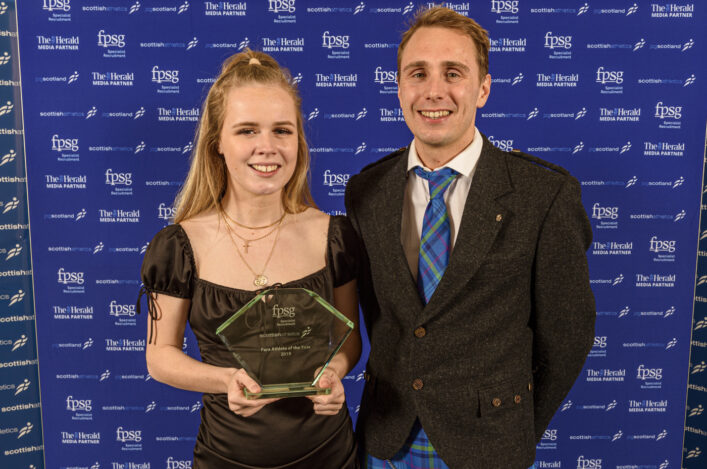
Maria and Jamie celebrate Awards success in November 2019 (photo by Bobby Gavin)
By Katy Barden
‘Lucky’ isn’t usually a word you associate with injury, but in Maria Lyle’s case – or more specifically, in her coach Jamie Bowie’s case – its use is apt.
Bowie, a former GB and NI international and World Indoor Champs 4 x 400m relay silver medallist, was approached to coach Lyle post-Para World Athletics Championships in London 2017.
Lyle was 17-years-old at the time and a double bronze medallist over 100m and 200m (T35 classification) at the Rio 2016 Paralympic Games. She had repeated that feat in London, but a new training set-up near the capital, coupled with injury, had resulted in her losing her love for the sport.
‘We had a quite a big rehab project to deal with initially due to Maria’s stress reaction, as well as trying to understand what was causing that,’ says Bowie.
‘Looking back, I was lucky to be in that position because it forced me to understand more about Maria and to learn about the complexities associated with her Cerebral Palsy. We learned – and continue to learn – a lot together.’
The enforced delay to commencing Lyle’s competitive programme gave Bowie the opportunity to study the specifics of coaching an athlete with movement and coordination challenges, building on the self-styled apprenticeship he’d undertaken while still competing.
Maria in action at the 4J Studios Open Series at Meadowmill last summer (photo by Bobby Gavin)
‘You can’t really predict how Cerebral Palsy affects somebody, so it’s definitely one of the more challenging impairments to work with,’ he says.
‘There are certain times when you just have to make a bit of a judgement call, for example, when is technique naturally going to breakdown due to fatigue, and when is the Cerebral Palsy setting in (therefore causing the technique to breakdown) – and where do you draw the line?
‘There are things we can’t do due to co-ordination issues or because of Maria’s Cerebral Palsy affecting her grip, so there are some things that we’d like to do in the gym that we can’t.
‘We then have to re-think, and we may just do part of the movement, re-designing exercises to give us what we want.
‘Ultimately, we have to be more creative than if Maria was a non Para athlete; what can’t we do? What can we do? What do we need to do, and why? Then we figure out how we do that. It’s like a problem-solving exercise and communication is absolutely key.’
Bowie, who is a Performance Manager at Scottish Gymnastics, believes that coaching a Para athlete has made him a better coach.
‘It makes you think,’ he says.
‘Yes, you’ve got a technical model to work to, but not every Para athlete is the same, not every Cerebral Palsy athlete is the same, so it makes you coach what you see on front of you and to work things out.’
In addition to their collective creativity, Bowie believes that perseverance with certain exercises has contributed to Lyle’s development in the three years they’ve worked together, activating her complex neural pathways.
He has also stayed true to the philosophy of his gymnastics mentor Scott Hahn (coach to double Olympic champion Max Whitlock) – ‘find a way’.
‘You have to find a way,’ says Bowie. ‘If you can’t do an exercise one way, you do it another way or you find something different that gives the same result.
‘If you want to coach an athlete to be the best at what they do, you need to find the stimulus to make that happen.’
Making headlines . . . Para athletics focus in PB magazine as we looked at Coaching and Clubs
Tags: Jamie Bowie, Maria Lyle, Para athletics
Latest Articles
International
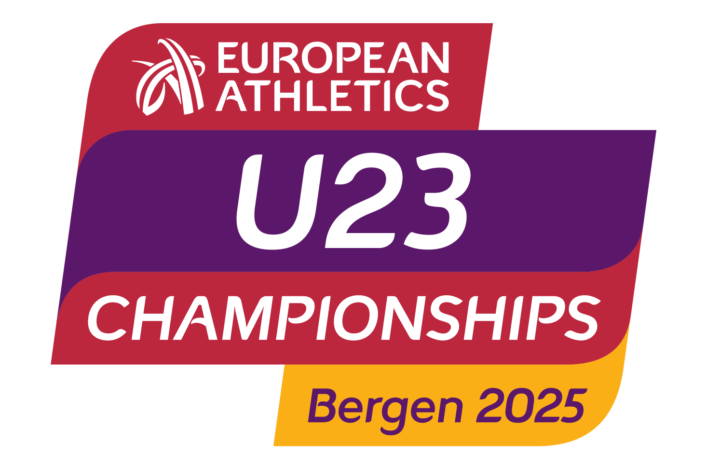
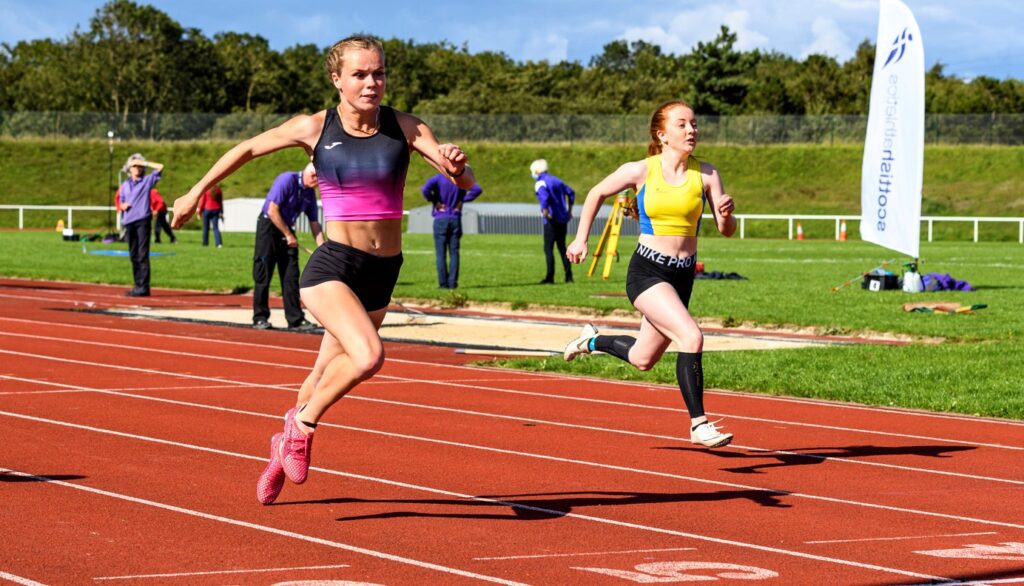
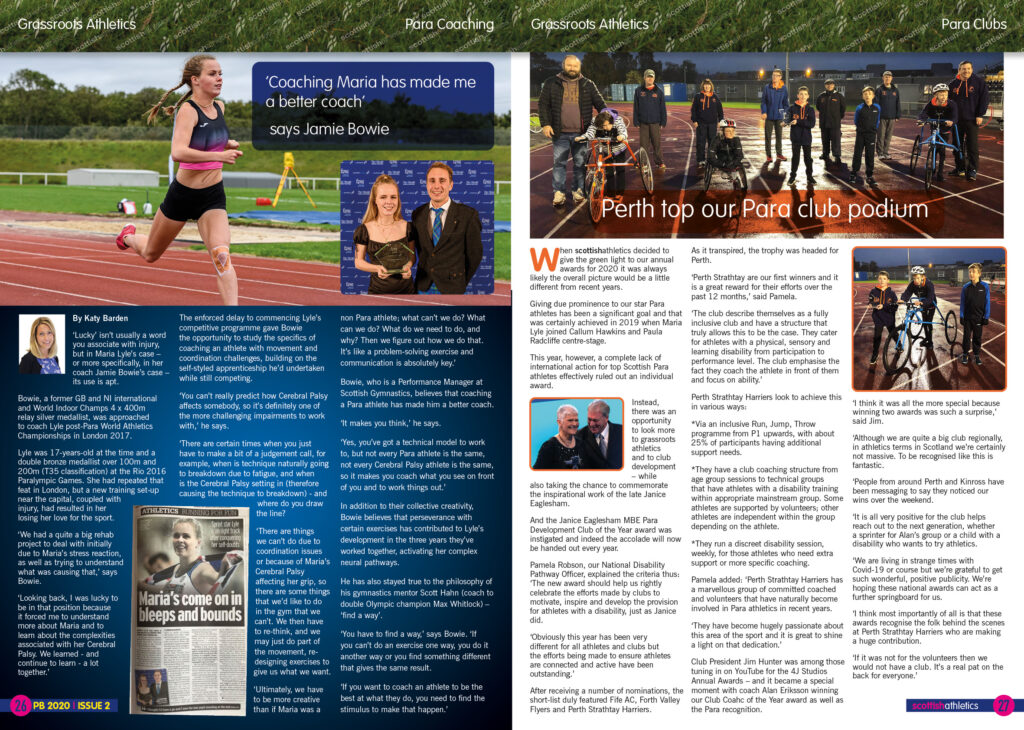
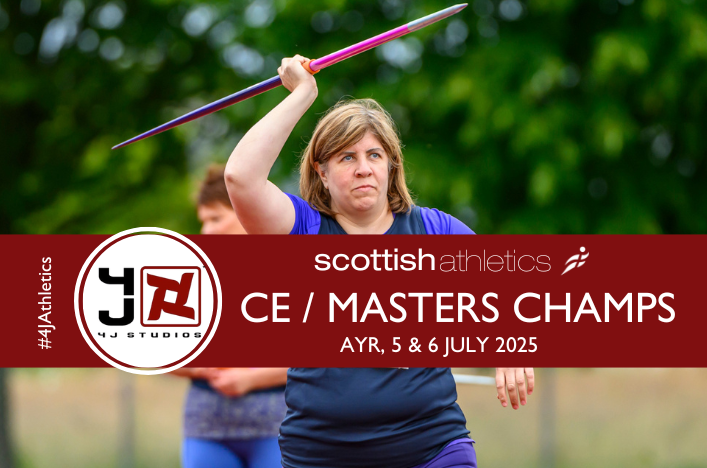
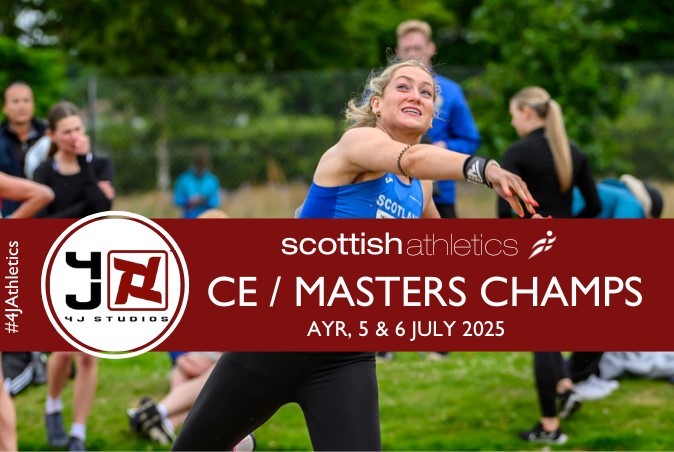
Latest Facebook update
Problem displaying Facebook posts. Backup cache in use.
Click to show error